Conference DotNext 2015 Moscow: final program and review of reports
There was nothing left for the only Russian .NET conference DotNext - two and a half weeks. The conference program has been formed, and we proudly present it to you:
Participants can not worry - all the reports that they miss will be available to them on video the very next day.

')
The grid will be adjusted this week: the halls are of different sizes, and you will need to understand which reports inside the timeslot are more popular in order to put the most popular report in the first, largest, hall, and not very popular reports - in the fourth hall.
A month ago, I announced the first 7 of them, and now it’s time to go for a short run through the rest.

Sasha Goldshtein from sunny Israel, Microsoft MVP, will add a bit of hardcore to our everyday life by making two reports at once.
The Vector in Your CPU: Exploiting SIMD for Superscalar Performance - a report on how vector CPU instructions are used in modern .NET. It will be about how the System.Numerics.Vectors library and the new RyuJIT will allow you to overclock your application using SIMD instructions. Read more ...
Automating Problem Analysis and Triage - a report on how to do automatic analysis of dumps using ClrMD, a .NET library that helps examine threads, call stacks and exceptions; visualize threads and locks, including detecting deadlocks, and walk along your heap to help you examine the structure of objects in your application. Read more ...
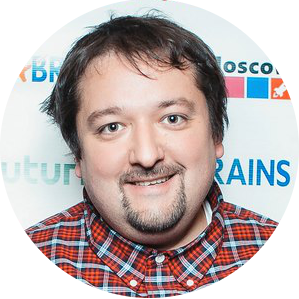
Dmitry Soshnikov from Microsoft will make a report on functional F # programming in big data processing and machine learning .
In the report we will consider one of the aspects of using the functional language F #: data processing. Starting from simple examples, we will move on to solving the classical machine learning problem of recognizing handwritten numbers, then consider using F # to implement computing on cloud clusters using the MBrace platform.
The report will be of interest both to developers who have not had experience with F #, and to more experienced functional programmers who want to use the power of F # for distributed cloud computing. Read more ...
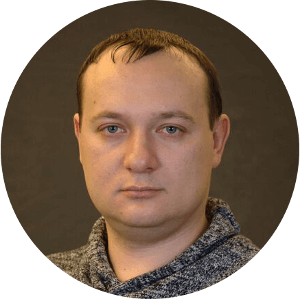
Vladimir Kochetkov , Timlid of the PT Application Inspector code security analyzer development project and one of the founders of the RSDN, will tell you about the pitfalls of System.Security.Cryptography .
In this report, without unnecessary mathematical hardcore, we will talk about typical scenarios for using cryptography tools in .NET applications, consider the best practices for solving common problems, analyze typical vulnerabilities and see demos of several real attacks on the most interesting ones. Read more ...
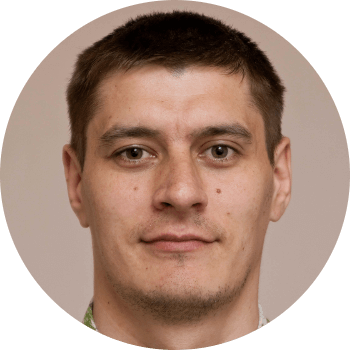
Anatoly Kulakov from Paladyne Systems will talk about structured logging .
The report talks about how to turn logs scattered throughout the disc into a full-fledged Event Source system. And to give each developer a feel as an almighty analyst.
All this is possible thanks to structural logging (Structured logging), which introduces a semantic component to your logs. The main problems of the ELK stack (Elasticsearch, Logstash, Kibana) will be considered. We will look at how to work with structural logs in .NET using the Serilog library. We will solve several practical problems with the help of available tools, which without the semantics of the journal would not be lifting. We will understand with a specialized server Seq. And, of course, we will find ways to quickly and painlessly migrate existing applications to this miracle stack. Read more ...
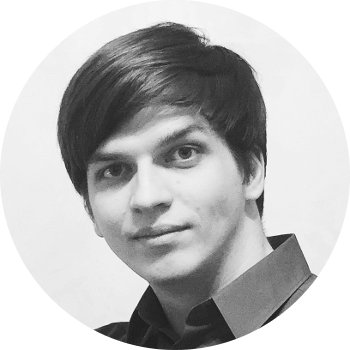
Alexander Shvedov from JetBrains will talk about the design and evolution of the C # language on the example of properties .
The idea of this report originated from the everyday task of the IDE developer - C # 6.0 language support, included in Visual Studio 2015. The language enhancements related to the common language tool, property declarations, were suddenly difficult to maintain and highly affect the existing automatic refactoring code that was deeply needed understand most of the features of C # properties. In this report, Alexander will invite students to reflect on this “everyday” language tool, to trace in detail the development of properties from version 1.0 of the C # language, to reflect on the design problems of C # and look at the properties through the eyes of the IDE developer.

Igor Yakovlev from Positive Technologies will talk about the use and the DLR device .
The report will look at both the internal structure of the DLR (from the dynamic keyword in C # and the generation of code that implements dynamic operations) and the practical value of this subsystem (the frameworks that use it). This material will allow you to understand how classes such as DynamicObject and ExpandoObject are implemented and how they can be used in your code.
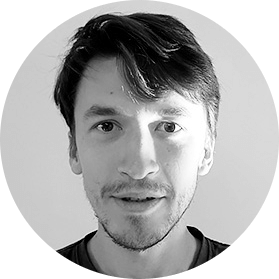
Alexander Nikitin from Adform will give a report on .NET Generics under the hood and a JITter bug for dessert .
In the report, we’ll recall the .NET Memory Layout, start WinDbg, see how .NET generics are built from the inside, what CLR optimizations are taking to be fast, and most interestingly, often as fast as the usual methods.
There will be a dessert - a bug in Jitter! Only hardcore! Even more hardcore - in discussions.
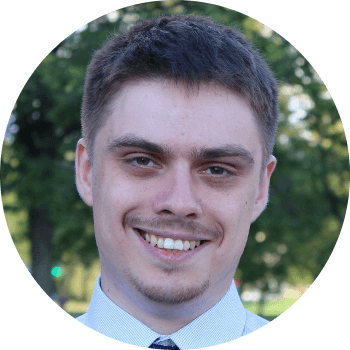
Vladimir Ozerov from GridGain will talk about the interaction with the native code .
In the report, we will look at key techniques for interacting with native code, discuss their advantages and disadvantages, and also get acquainted with the internal implementation of a number of tools in the CLR. As an example, we will consider solutions applied when migrating Apache Ignite (distributed cache written in Java and C ++) to the .NET platform.
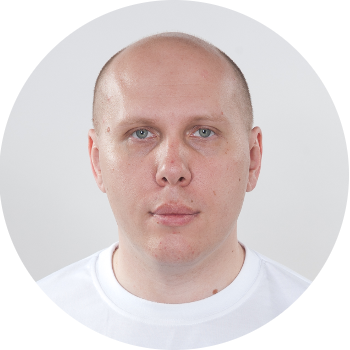
Andrey Karpov, aka Andrey2008 , CTO of the company CCVerOver and code analyzer PVS-Studio , Microsoft MVP, will give a report on static code analysis .
Andrei will talk about what the methodology of static code analysis is about the correct and incorrect use of analysis tools. Further, it will show examples of errors that can be identified using tools such as ReSharper, PVS-Studio, Visual Studio SCA. And of course, it will be shown why the use of analyzers is becoming an increasingly important part of the program development process. Read more ...
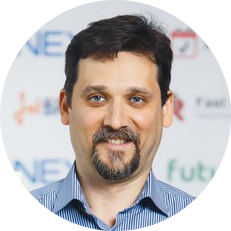
Mikhail Samarin , Futurice Business Director, Microsoft MVP, will give a talk on the new hardware APIs and platforms available for the Universal Windows Platform .
In his presentation, Michael will make a brief, but very illustrative overview of the new hardware interfaces and platforms available for UWP developers. Here is the main list of topics to be demonstrated:
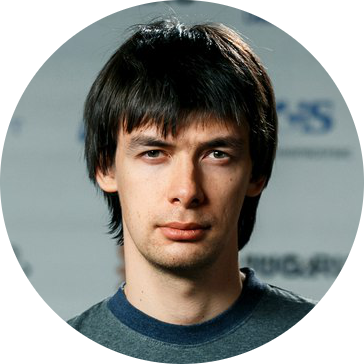

Roman Belov and Dmitry Ivanov , engineers of JetBrains and the best speakers of DotNext 2014 Moscow, will make a report on current trends in programming languages .
Unlike .NET, many modern programming languages have appeared in the JVM world, in which there are many language constructs and syntactic sugar, which is not found not only in Java, but also in C #. This report will show what new insights C-programmers might hurt, as well as which concepts will never appear in .NET, but are already available on other platforms and languages.
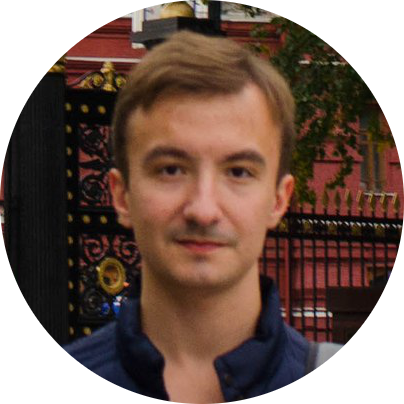
Nikita Governors from DevExpress will tell about the advantages and disadvantages of Xamarin.Forms .
For the year of working with Xamarin.Forms, Nikita had a lot of impressions about this technology, both positive and negative. In his report, he will tell
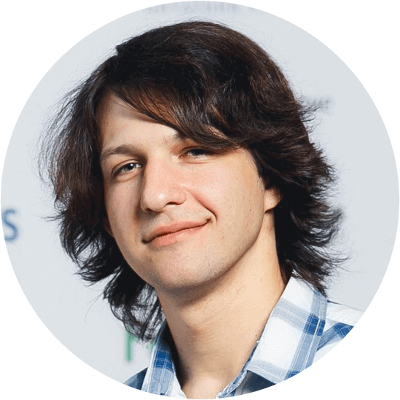
Andrei Akinshin , JetBrains engineer, Microsoft MVP, will tell about the updates in the .NET platform .
In this report, we will try to take a quick look at the current state of the .NET platform, as well as what awaits us in the near future. Let's talk about the upcoming C # 7, about cross-platform and native compilation, about the new .NET Core 5 and ASP.NET 5, about the new tools for developers and the latest announcements from Microsoft.

Alexander Ivanov from EPAM Systems will give a talk on how the Web application development platform is developing in the .NET Framework .
Alexander will tell about
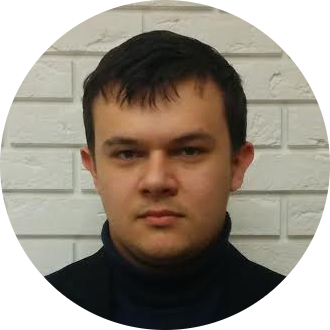
Kirill Levchenko from ABBYY will talk about the Entity Framework 7.0 .
In connection with the rapid increase in the number of storage systems available to developers, the question arises - how to unify access to various sources and on different platforms? The new version of the flagship ORM for the .NET Entity Framework 7 will help to solve this problem. In the report, not only the topics of data storage in different sources and on different platforms, but also innovations in working with Microsoft SQL Server will be raised.
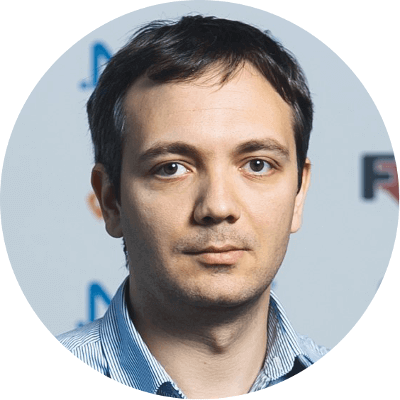
Dmitry Nesteruk , Developer Advocate in JetBrains, Microsoft MVP, will tell you what's new in ReSharper 10 .
Recently another ReSharper release took place, and Dmitry will be glad to tell you again about what new features and capabilities appeared in version 10. The report will tell about its own build-system ReSharper, support for new markup languages (for example Protocol Buffers) and many other things.
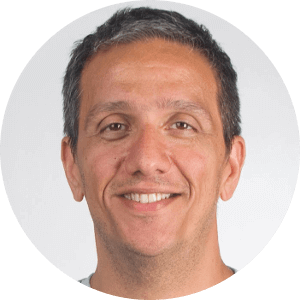
The conference will close with a presentation by Hadi Hariri , JetBrains evangelical team leader, Microsoft MVP, who will talk about the Silver Bullet Syndrome .
Patterns, microservices, NoSQL solutions ... The list is probably endless. A report on why we are always chasing some mythical universal tool that supposedly helps us solve all our problems. And about what it costs us.
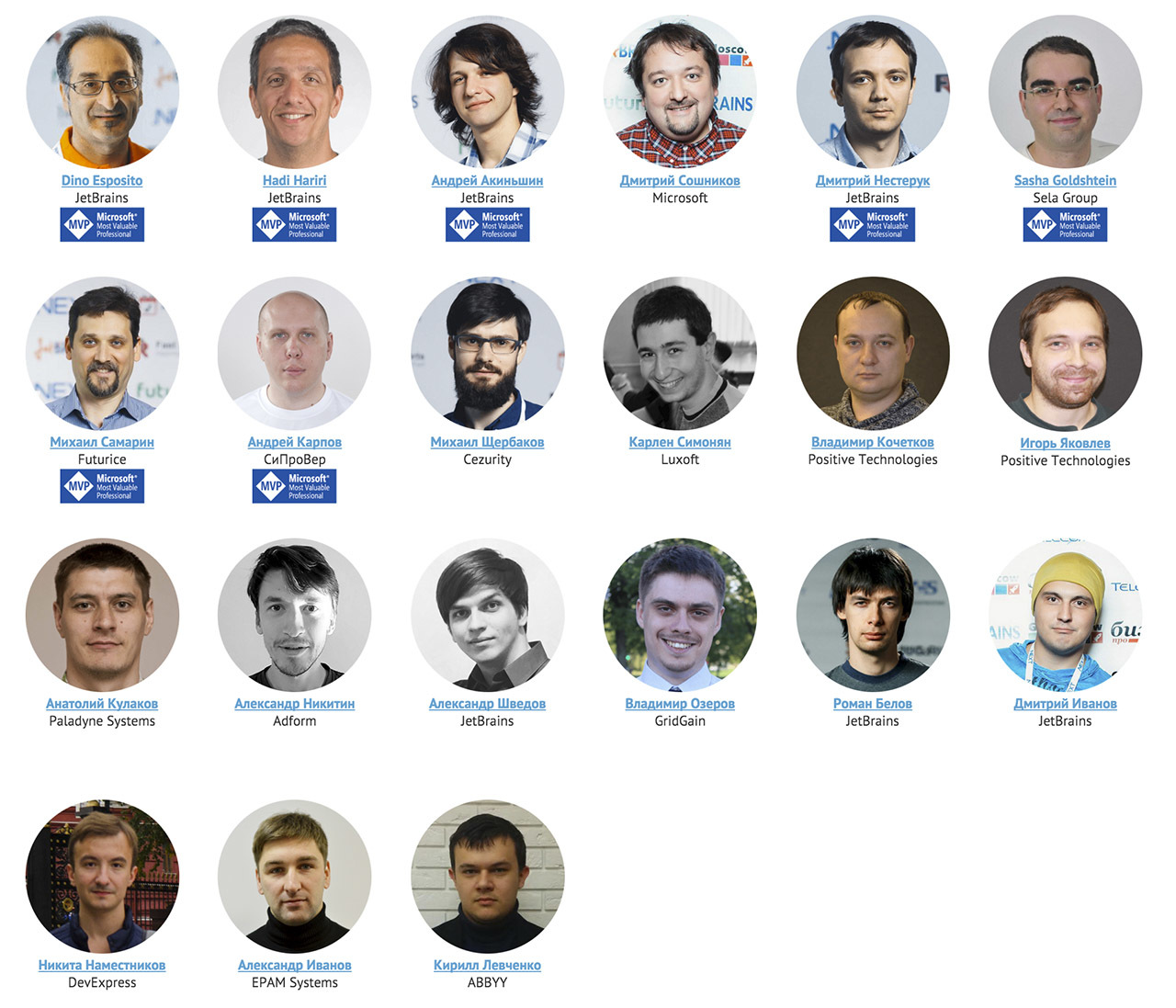
Full announcements of the reports can be found on the conference website . If you are interested in something or have questions - write in the comments below.
- 26 reports - 2 keyout and 24 session ones.
- 22 speakers , of which seven (!) Are Microsoft MVP titles
- 4 halls in which reports will be held in parallel.
Participants can not worry - all the reports that they miss will be available to them on video the very next day.

')
The grid will be adjusted this week: the halls are of different sizes, and you will need to understand which reports inside the timeslot are more popular in order to put the most popular report in the first, largest, hall, and not very popular reports - in the fourth hall.
A month ago, I announced the first 7 of them, and now it’s time to go for a short run through the rest.

Sasha Goldshtein from sunny Israel, Microsoft MVP, will add a bit of hardcore to our everyday life by making two reports at once.
The Vector in Your CPU: Exploiting SIMD for Superscalar Performance - a report on how vector CPU instructions are used in modern .NET. It will be about how the System.Numerics.Vectors library and the new RyuJIT will allow you to overclock your application using SIMD instructions. Read more ...
Automating Problem Analysis and Triage - a report on how to do automatic analysis of dumps using ClrMD, a .NET library that helps examine threads, call stacks and exceptions; visualize threads and locks, including detecting deadlocks, and walk along your heap to help you examine the structure of objects in your application. Read more ...

Dmitry Soshnikov from Microsoft will make a report on functional F # programming in big data processing and machine learning .
In the report we will consider one of the aspects of using the functional language F #: data processing. Starting from simple examples, we will move on to solving the classical machine learning problem of recognizing handwritten numbers, then consider using F # to implement computing on cloud clusters using the MBrace platform.
The report will be of interest both to developers who have not had experience with F #, and to more experienced functional programmers who want to use the power of F # for distributed cloud computing. Read more ...

Vladimir Kochetkov , Timlid of the PT Application Inspector code security analyzer development project and one of the founders of the RSDN, will tell you about the pitfalls of System.Security.Cryptography .
In this report, without unnecessary mathematical hardcore, we will talk about typical scenarios for using cryptography tools in .NET applications, consider the best practices for solving common problems, analyze typical vulnerabilities and see demos of several real attacks on the most interesting ones. Read more ...

Anatoly Kulakov from Paladyne Systems will talk about structured logging .
The report talks about how to turn logs scattered throughout the disc into a full-fledged Event Source system. And to give each developer a feel as an almighty analyst.
All this is possible thanks to structural logging (Structured logging), which introduces a semantic component to your logs. The main problems of the ELK stack (Elasticsearch, Logstash, Kibana) will be considered. We will look at how to work with structural logs in .NET using the Serilog library. We will solve several practical problems with the help of available tools, which without the semantics of the journal would not be lifting. We will understand with a specialized server Seq. And, of course, we will find ways to quickly and painlessly migrate existing applications to this miracle stack. Read more ...

Alexander Shvedov from JetBrains will talk about the design and evolution of the C # language on the example of properties .
The idea of this report originated from the everyday task of the IDE developer - C # 6.0 language support, included in Visual Studio 2015. The language enhancements related to the common language tool, property declarations, were suddenly difficult to maintain and highly affect the existing automatic refactoring code that was deeply needed understand most of the features of C # properties. In this report, Alexander will invite students to reflect on this “everyday” language tool, to trace in detail the development of properties from version 1.0 of the C # language, to reflect on the design problems of C # and look at the properties through the eyes of the IDE developer.

Igor Yakovlev from Positive Technologies will talk about the use and the DLR device .
The report will look at both the internal structure of the DLR (from the dynamic keyword in C # and the generation of code that implements dynamic operations) and the practical value of this subsystem (the frameworks that use it). This material will allow you to understand how classes such as DynamicObject and ExpandoObject are implemented and how they can be used in your code.

Alexander Nikitin from Adform will give a report on .NET Generics under the hood and a JITter bug for dessert .
In the report, we’ll recall the .NET Memory Layout, start WinDbg, see how .NET generics are built from the inside, what CLR optimizations are taking to be fast, and most interestingly, often as fast as the usual methods.
There will be a dessert - a bug in Jitter! Only hardcore! Even more hardcore - in discussions.

Vladimir Ozerov from GridGain will talk about the interaction with the native code .
In the report, we will look at key techniques for interacting with native code, discuss their advantages and disadvantages, and also get acquainted with the internal implementation of a number of tools in the CLR. As an example, we will consider solutions applied when migrating Apache Ignite (distributed cache written in Java and C ++) to the .NET platform.

Andrey Karpov, aka Andrey2008 , CTO of the company CCVerOver and code analyzer PVS-Studio , Microsoft MVP, will give a report on static code analysis .
Andrei will talk about what the methodology of static code analysis is about the correct and incorrect use of analysis tools. Further, it will show examples of errors that can be identified using tools such as ReSharper, PVS-Studio, Visual Studio SCA. And of course, it will be shown why the use of analyzers is becoming an increasingly important part of the program development process. Read more ...

Mikhail Samarin , Futurice Business Director, Microsoft MVP, will give a talk on the new hardware APIs and platforms available for the Universal Windows Platform .
In his presentation, Michael will make a brief, but very illustrative overview of the new hardware interfaces and platforms available for UWP developers. Here is the main list of topics to be demonstrated:
- The ability to track faces from a live video stream built into the platform;
- The new version of the Imaging SDK to apply image processing filters with hardware Direct2D acceleration;
- A fundamentally new API Audio Graph for extremely low-latency audio streams, as well as a new system MIDI interface for creators of music applications;
- Access to all the sensors of the new Microsoft Band 2 using the Band SDK;
- And finally, UWP applications on the IoT platform with Raspberry Pi 2.


Roman Belov and Dmitry Ivanov , engineers of JetBrains and the best speakers of DotNext 2014 Moscow, will make a report on current trends in programming languages .
Unlike .NET, many modern programming languages have appeared in the JVM world, in which there are many language constructs and syntactic sugar, which is not found not only in Java, but also in C #. This report will show what new insights C-programmers might hurt, as well as which concepts will never appear in .NET, but are already available on other platforms and languages.

Nikita Governors from DevExpress will tell about the advantages and disadvantages of Xamarin.Forms .
For the year of working with Xamarin.Forms, Nikita had a lot of impressions about this technology, both positive and negative. In his report, he will tell
- how Xamarin.Forms works;
- in which cases it is possible to use it, and when it is better to choose a native development;
- what you have to give up, but what can be used in return;
- about some problems that the author has encountered, and how to solve them.

Andrei Akinshin , JetBrains engineer, Microsoft MVP, will tell about the updates in the .NET platform .
In this report, we will try to take a quick look at the current state of the .NET platform, as well as what awaits us in the near future. Let's talk about the upcoming C # 7, about cross-platform and native compilation, about the new .NET Core 5 and ASP.NET 5, about the new tools for developers and the latest announcements from Microsoft.

Alexander Ivanov from EPAM Systems will give a talk on how the Web application development platform is developing in the .NET Framework .
Alexander will tell about
- the OWIN specification, the implementation of which provides a sufficiently simple and flexible way to create Web servers;
- The new runtime for the execution of .NET applications is .NET Core. This new runtime is a redesigned version of the old .NET Framework and allows you to create cross-platform applications;
- how the technologies mentioned above open up completely new possibilities for developing web applications on .NET.

Kirill Levchenko from ABBYY will talk about the Entity Framework 7.0 .
In connection with the rapid increase in the number of storage systems available to developers, the question arises - how to unify access to various sources and on different platforms? The new version of the flagship ORM for the .NET Entity Framework 7 will help to solve this problem. In the report, not only the topics of data storage in different sources and on different platforms, but also innovations in working with Microsoft SQL Server will be raised.

Dmitry Nesteruk , Developer Advocate in JetBrains, Microsoft MVP, will tell you what's new in ReSharper 10 .
Recently another ReSharper release took place, and Dmitry will be glad to tell you again about what new features and capabilities appeared in version 10. The report will tell about its own build-system ReSharper, support for new markup languages (for example Protocol Buffers) and many other things.

The conference will close with a presentation by Hadi Hariri , JetBrains evangelical team leader, Microsoft MVP, who will talk about the Silver Bullet Syndrome .
Patterns, microservices, NoSQL solutions ... The list is probably endless. A report on why we are always chasing some mythical universal tool that supposedly helps us solve all our problems. And about what it costs us.

Full announcements of the reports can be found on the conference website . If you are interested in something or have questions - write in the comments below.
Source: https://habr.com/ru/post/271531/
All Articles